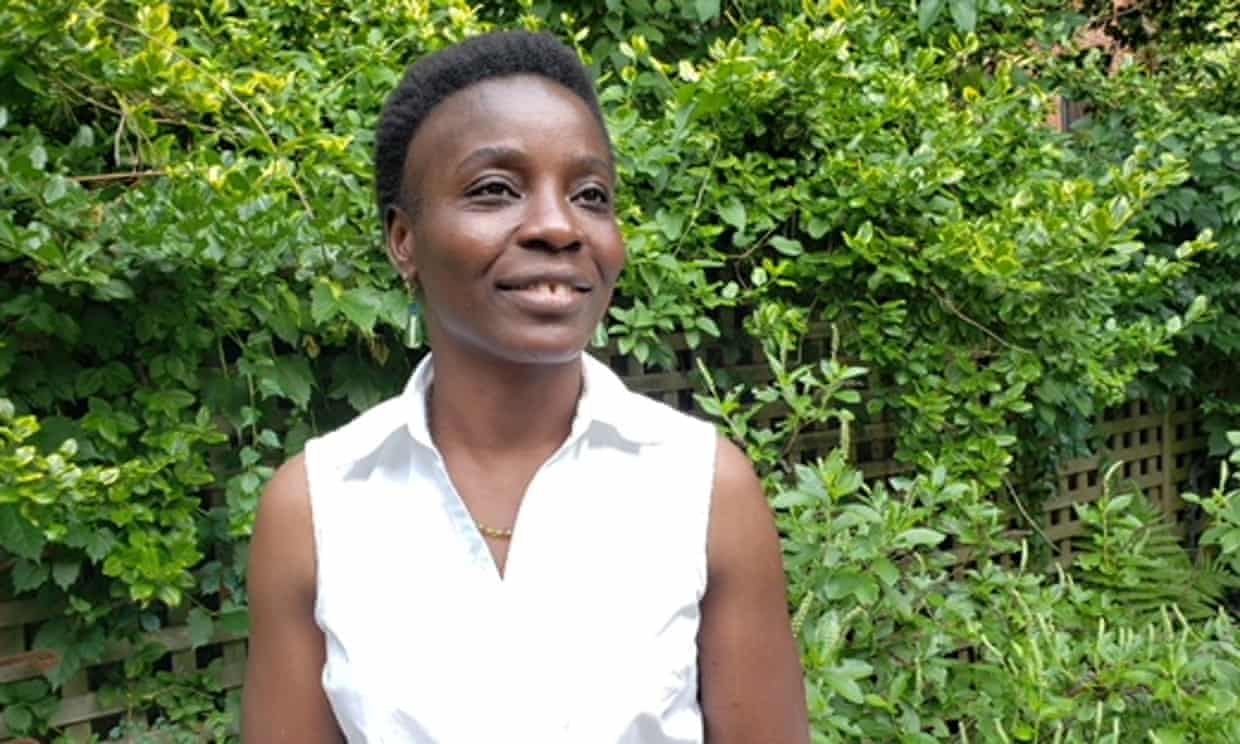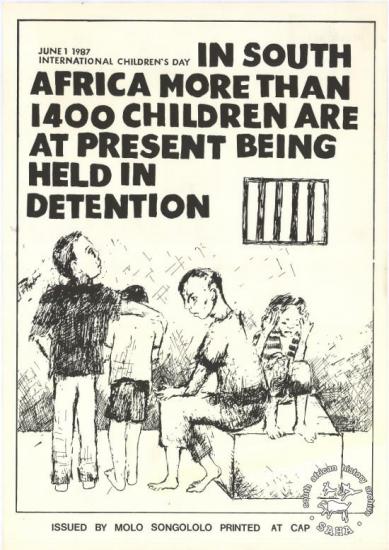
Patricia Okoumou
“The root of the word memory stems from the word mourn.”
Valarie Lee James
On July 4, Therese Patricia Okoumou, who goes by Patricia, celebrated “Independence Day” by scaling the pedestal of the Statue of Liberty and climbing to the robes, to protest family separation, zero tolerance, abuse of children, and, generally, the assault on democracy. After four hours, Patricia Okoumou came down and was arrested. Outside of court the next day, Patricia Okoumou explained, “In a democracy, we do not put children in cages. Period. There is no debating it. Nothing you can say to me will justify putting children in cages.”
In a democracy, we do not put children in cages. Period.
Who sat with Patricia Okoumou on the toes of Lady Liberty? No one. While she may have felt the support of all those who rally to what is called the Resistance, in fact, materially, Patricia Okoumou sat alone. I thought of that being-alone-in-resistance the other day when a South African friend turned to me, apropos of nothing in particular, and said, “So Trump is horrible, maybe the worst ever. Where are the burning tires?” While I had some unpersuasive response, the question, like smoke, lingers. Where are the burning tires? Why did no one join Patricia Okoumou when she started climbing?
I am not talking here only about those who were protesting with Patricia Okoumou at the base of the Statue of Liberty. I am talking about all of us. On July 6, columnist Ross Ramsey asks, “If kids separated from their parents can’t hold our attention, what will?” On July 7, columnist Jessica Valenti responds, “The US government is abusing children – we can’t stop being urgently ashamed”. The obvious implication is that “we” might very soon stop being urgently ashamed, or ashamed at all. Meanwhile, also on July 6, it is reported that Jimena Madrid, the 6-year-old Salvadoran immigrant child who “riveted people around the world when her voice was captured on an audiotape after she was separated from her mother inside a Border Patrol detention facility”, is still not with her mother and the two may never be reunified. Are we paying attention? Are we urgently ashamed? Where are the burning tires?
“In a democracy, we do not put children in cages. Period. There is no debating it. Nothing you can say to me will justify putting children in cages.”
Patricia Okoumou sat and lay on the Statue of Liberty for four hours. At one point, she napped briefly. When she awakened, the police had set up a ladder. A police officer at the top of the ladder said his name was Brian and he was there because he cared about Patricia Okoumou. Patricia Okoumou answered, “No, you don’t, you could shoot me the way you shot Claudia Gomez and killed the trans woman.” Patricia Okoumou was invoking, and mourning,Claudia Patricia Gómez González, a 20-year-old Guatemalan refugee shot in the head by ICE agents in Texas; and Roxana Hernández, a 33-year-old Honduran transgender woman refugee who died in ICE custody in the detention center commonly called the ice box. Both women were killed, or better executed, in May. Patricia Okoumou refused to forget them. Memory begins in mourning.
Repeat after me repeating after Patricia Okoumou: “In a democracy, we do not put children in cages. Period. There is no debating it. Nothing you can say to me will justify putting children in cages.”
Who sits with Patricia Okoumou?
“In a democracy, we do not put children in cages. Period. There is no debating it. Nothing you can say to me will justify putting children in cages.”
Where are the burning tires?
“In a democracy, we do not put children in cages. Period. There is no debating it. Nothing you can say to me will justify putting children in cages.”
If kids separated from their parents can’t hold our attention, what will?
“In a democracy, we do not put children in cages. Period. There is no debating it. Nothing you can say to me will justify putting children in cages.”
In a democracy, we do not put children in cages. Period.
(Photo Credit: The Guardian / Joanna Walters)
 On April 6, 2008, two police officers arrested 15-year-old
On April 6, 2008, two police officers arrested 15-year-old